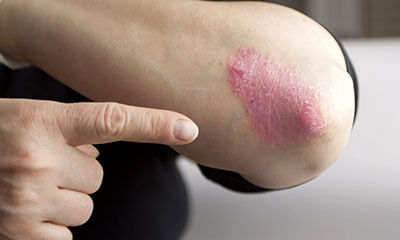Know More About Psoriasis
Psoriasis is a chronic disease. It develops when a person’s immune systemsends faulty signals that tell skin cells to grow too quickly. New skin cells form in days rather than weeks.
The body does not shed these excess skin cells. The skin cells pile up on the surface of the skin, causing patches of psoriasis to appear. Psoriasis may look contagious, but it's not.
You cannot get psoriasis from touching someone who has it. To get psoriasis, a person must inherit the genes that cause it.
Types of psoriasis
If you have psoriasis, you will have one or more of these types:
- Plaque (also called psoriasis vulgaris).
- Guttate.
- Inverse (also called flexural psoriasis or intertriginous psoriasis).
- Pustular.
- Erythrodermic (also called exfoliative psoriasis).
Some people get more than one type. Sometimes a person gets one type of psoriasis, and then the type of psoriasis changes.
Its treatment depends on chronicity,severity,types,also patient's age,lifestyle also play an important role in its treatment.



+1.svg)
